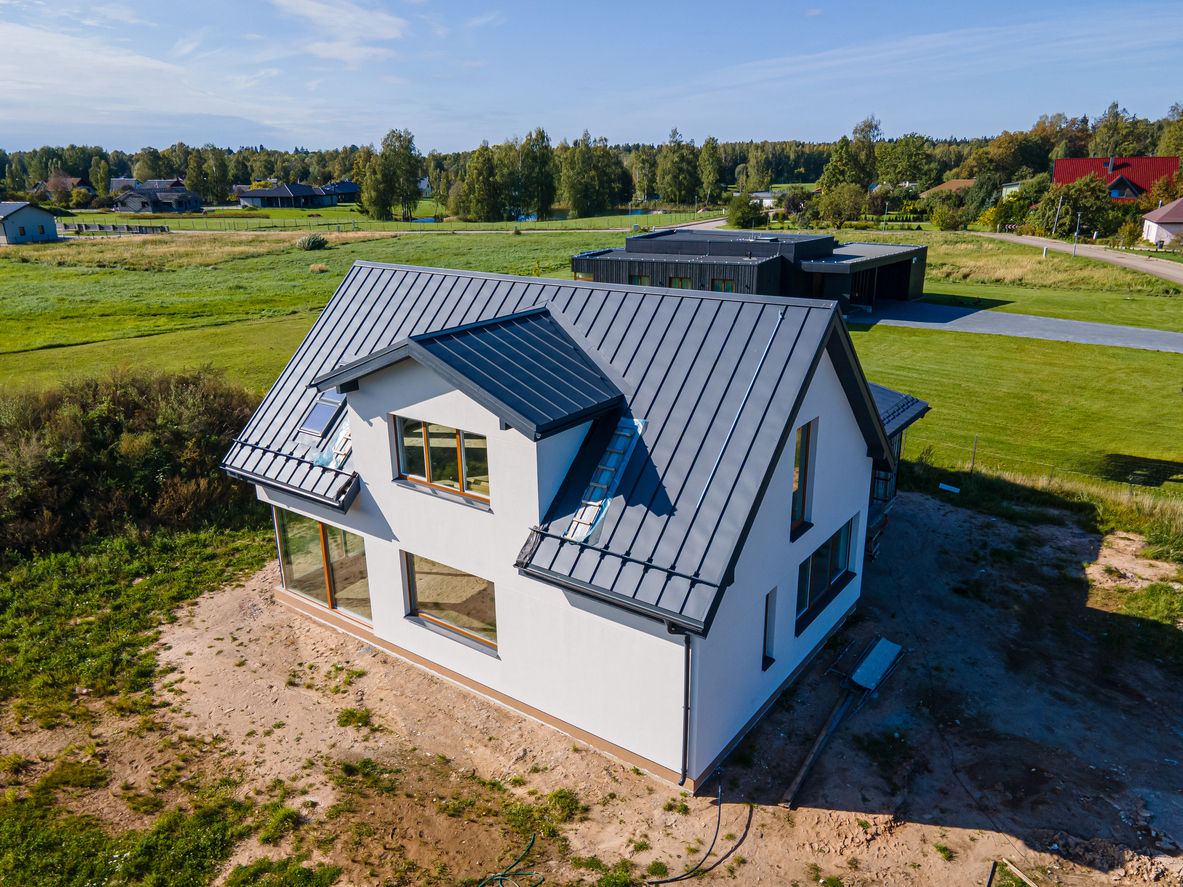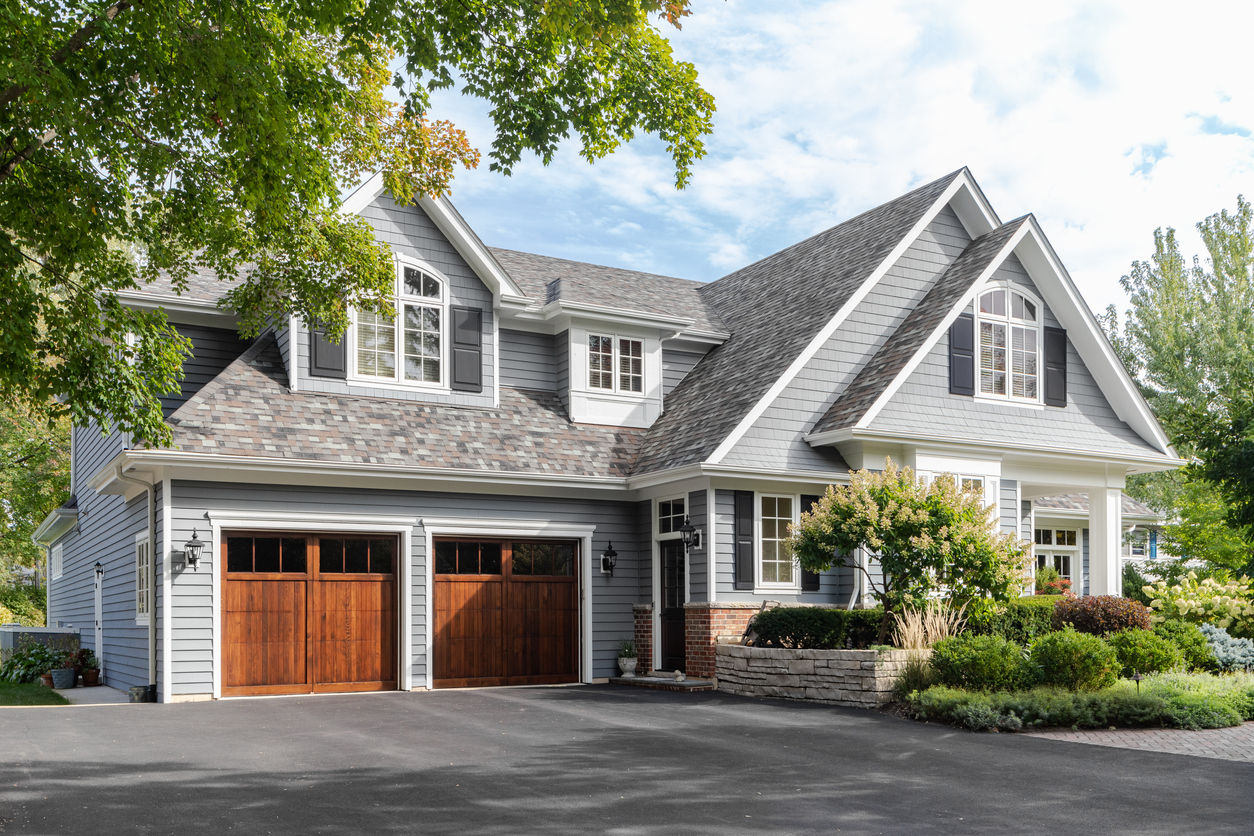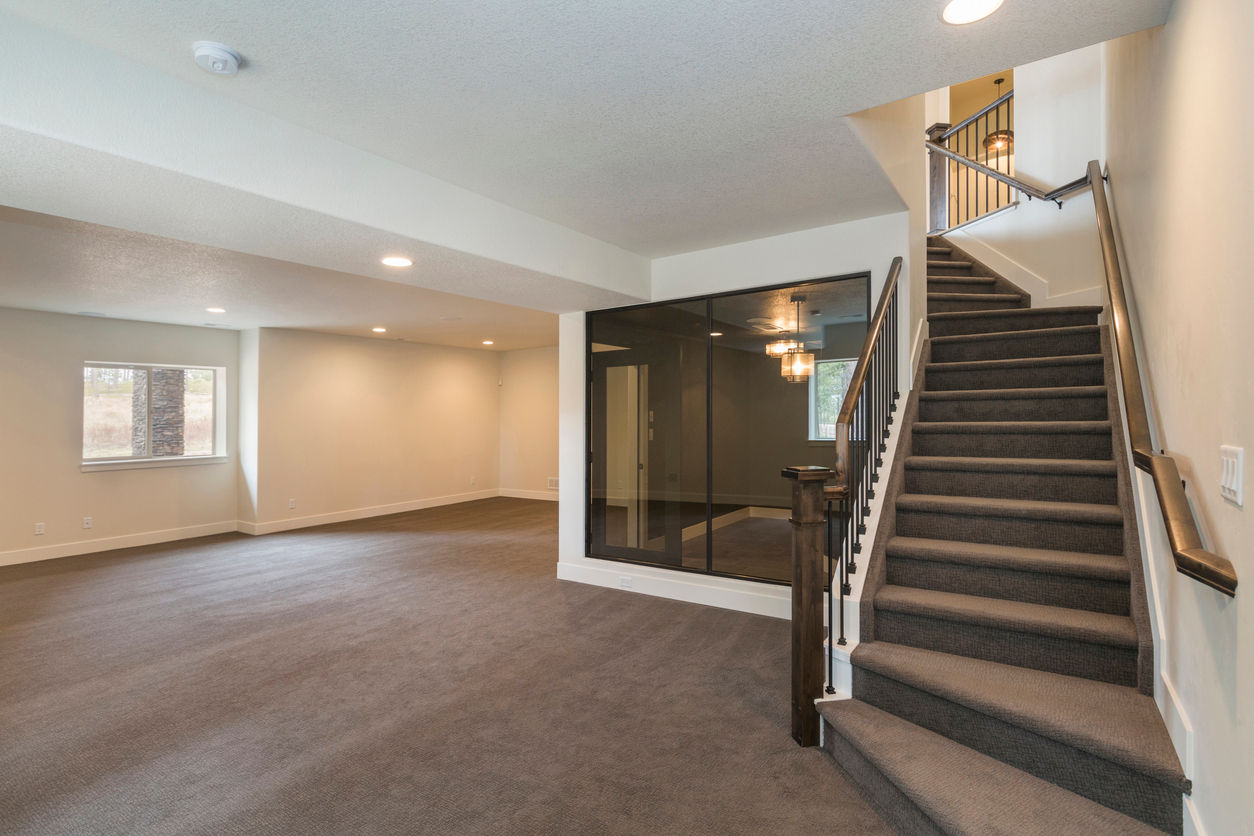Are Basements Included in Square Footage?
Click here to browse our Real Estate Agent Directory and contact top-rated agents in your area!
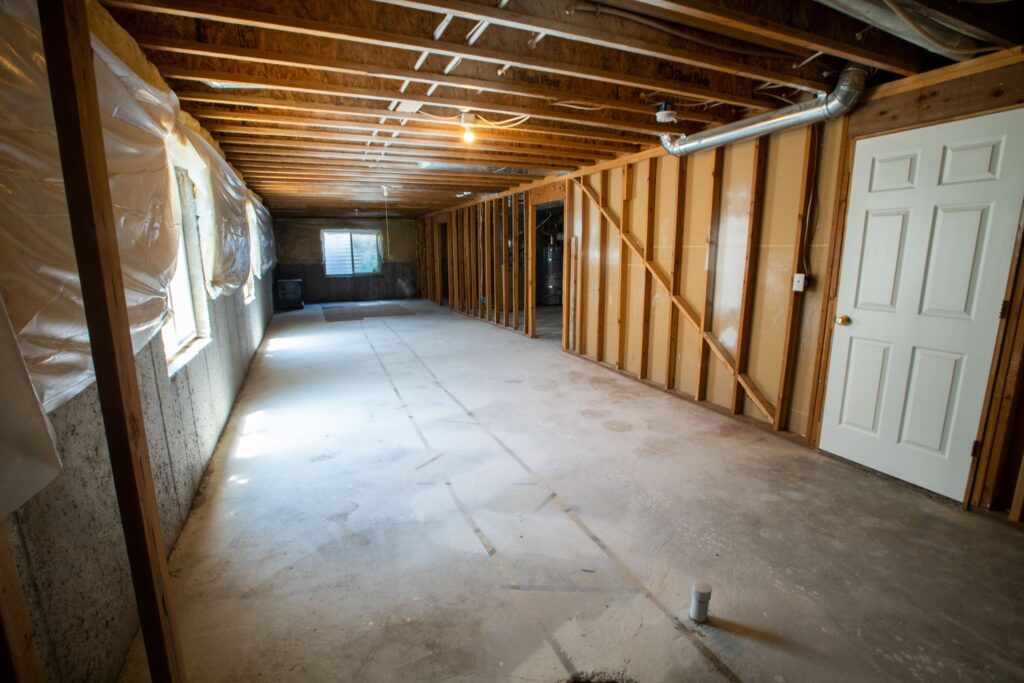
The U.S. has some of the world’s largest homes by square footage. Since the Great Recession, the average size of new single-family homes in America is now 2,537 square feet, an increase of 6.3%. As a result, one of the most common questions is, “Are basements included in square footage?”
The answer isn’t always as straightforward as people think. If you’re considering buying or selling a home, here’s what you need to know about house square footage and how basements impact that figure.
How is the Square Footage of a House Calculated?
Homeowners should be aware of the square footage of their homes. Your square footage determines the size of your property. During a real estate transaction, square footage is one of the most crucial factors in appending a dollar value to a property. Square footage directly impacts the purchase price and how you market it.
Even if you’re not selling your house, it’s helpful to know your square footage. Some cities will require this information if applying for a building or renovation permit. It’s also helpful to provide an accurate property value assessment.
Overestimating your square footage can mean paying more than necessary in property taxes.
So, you may be wondering, “Where can I find the square footage of my house?”
Taking a basic measurement of the square footage of your home is relatively simple. All you need is a measuring tape, a calculator, and a notepad. Follow these steps to calculate house square footage:
· Step One – Measure the length and width of each room and hallway.
· Step Two – Multiply the length and width of every room separately and write down the final figure for each area of your home.
· Step Three – Add your numbers to get your home’s overall square footage.
Note that your calculations will only be ballpark figures. If you’re selling your home, you’ll need to consult a professional to get an accurate picture of the square footage.
How Do Appraisals Consider Basement Square Footage?
Generally, appraisers and listing agents don’t count a basement toward the overall square footage of a home. Most appraisers will never count a basement if it’s below grade, meaning it is beneath ground level.
Whether appraisers count a basement depends on where you live. The assessor’s office in your county determines whether an appraiser will count the square footage of a finished or unfinished basement as part of a home’s square footage.
Mortgage providers also provide guidance on whether your basement counts toward square footage. Square footage is a similar but different term to Gross Living Area (GLA). Your GLA is the amount of your home that’s livable. Appraisers may use either measurement.
>> Agent Answers: Does a finished basement count in house square footage?
For example, if you’ve got a basement space you can’t stand up in, it will not count toward your home’s advertised square footage. In addition, some mortgage providers are stricter than others, with government-sponsored mortgage providers being stricter than private lenders.
So, are basements included in square footage for a Fannie Mae mortgage, for example? According to Fannie Mae, only the above-grade areas of your home can be included in square footage calculations. So, in this case, even a finished basement with a bedroom downstairs wouldn’t be counted.
If an appraiser uses GLA to measure square footage, nothing below-grade will count toward the final figure.
When is a Basement Excluded?
Does square footage include a basement? Firstly, your appraiser must use square footage rather than GLA. Some people consider the terms interchangeable, but there’s a subtle difference in practice. GLA will never include a below-grade basement under any circumstance.
Let’s run through some scenarios when a basement would be excluded.
Below-Grade Basements
Below-grade basements are nearly always excluded from square footage calculations. Below grade is just a technical term for any room below ground level.
Do basements count in square footage if it’s above grade? Sometimes it can, but it depends on where you live and who you ask.
Unfinished Basements
Unfinished basements are also excluded from square footage calculations. But what counts as a finished basement?
An unfinished basement is a basement that is partially below grade or fully below grade. It will still need to finish walls, ceilings, and floors. It also cannot have connected utilities, including HVAC, plumbing, or electricity. A basement with some but not all of these details is still considered unfinished.
Many people need clarification about unfinished basements. Even if you’re already using it as a rec room or an extra bedroom, if any of the above finishing details aren’t included, it would still be viewed as unfinished, meaning it can’t be counted as part of the square footage of your home.
On average, a finished basement costs $20,000, but you could spend just a few thousand dollars to up to $80,000 to bring your basement up to code.
Local Regulations
Local laws and customs enable you to count your basement as part of the square footage of your home.
Most of the U.S. will exclude a basement, but there are exceptions. It pays to enlist a local real estate agent if you want to sell. They’ll know the current regulations so you can stay compliant with the rules on selling real estate in your area.
Assuming your basement is included in the square footage can be costly, with buyers being able to legally pull out of the sale if an appraiser values your home without including the square footage of your basement.
When is a Basement Included?
The legal requirements surrounding whether to include a basement space in the overall square footage of a home vary by state. As a result, moving between states can make the process incredibly frustrating for buyers and sellers.
Sometimes, whether a basement is included will vary between agents. There’s what an agent will do and what meets the necessary appraisal standards.
Whether your basement is included will impact your marketability. For example, if a buyer is examining a home listed at 2,000 square feet and finds that 800 of these square feet are taken up by the basement, it’s a game-changer.
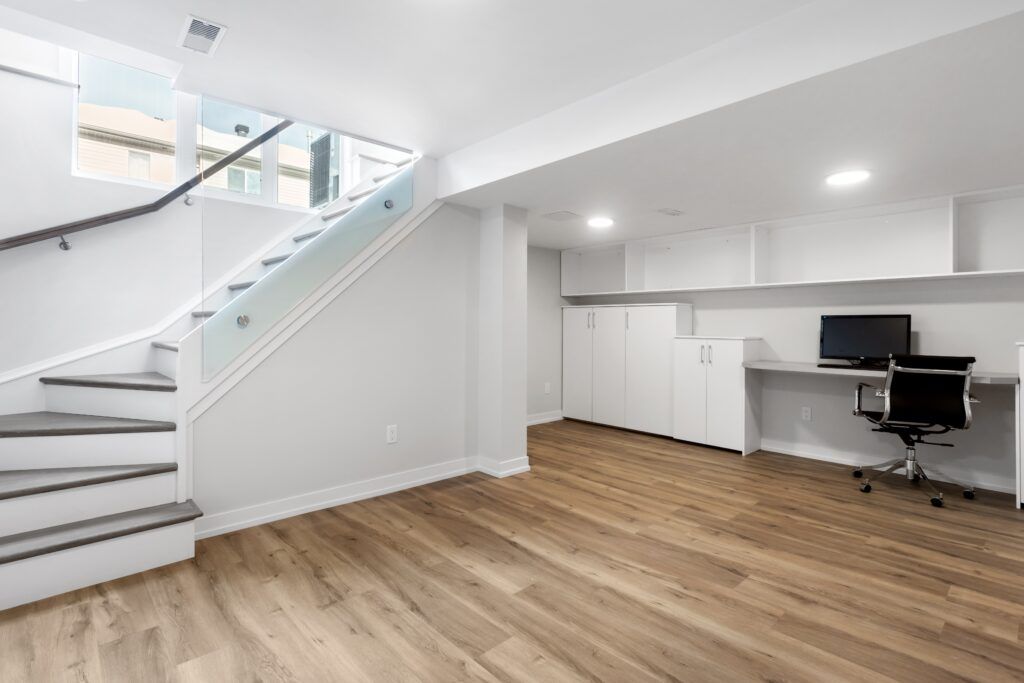
Are Walkout Basements Included in Square Footage?
Basements must have an ingress or egress to count toward the square footage of a home. Complying with municipal building codes means providing a route out of the basement in the event of a fire. If the floor above is on fire, there’s no way to escape the residence safely.
Technically, an ingress or egress can be a door or a window. In practice, it means you have an above-grade basement or a walkout basement. Under federal appraisal guidelines, window height, egress, and a walkout basement are included.
Walkout basements have a door that leads directly to the outside. These basements will have a staircase leading from the main living area and a door that leads to the outside. Garden-level basements won’t have an exterior door but will have windows looking out onto the garden.
Whether a garden-level basement counts depends on your municipality’s guidelines, but most locations won’t count these basements unless it has a direct exit to the property’s exterior.
Are Finished Basements Included in Square Footage?
Answering the question, “Are basements included in square footage if it’s finished?” is where agents and appraisers diverge.
According to federal appraisal guidelines, a finished basement must be to the same standards and quality as the rest of the house. In other words, there must be no noticeable differences between the floors, walls, lighting, and other features.
For example, if your basement has a bare concrete wall or floor, the chances are an appraiser will shake their head at including it within the square footage of a home.
Is a finished basement considered a living space?
Yes, a finished basement would count as a living space. On the other hand, just because your basement is a valid living space doesn’t automatically mean it’ll be factored into the square footage. In rare instances, even a finished basement will be included within the total square footage of a home.
How Much Do Basements Add Value to a Home?
Even if your basement isn’t included in the square footage, performing a basement conversion can still add considerable value to your home.
Figures vary, but it’s estimated that basements can increase your home value by 10-20%, with more value-added if it’s been completely finished.
Basements are valuable living and storage spaces, making them one of the most attractive assets to a buyer.
Finished Basements Mean More to Buyers
Figuring out “Are basements included in square footage?” is complex enough, but what about when marketing the number of stories a building has? Does a basement count as a story?
Again, this is an issue that depends on where you live. States like California expressly prohibit basements from being counted as an extra story. However, this doesn’t mean prospective buyers won’t view it as such.
Today, the American basement is going out of fashion. In 2018, less than a quarter of new homes were built with a basement nationwide. In addition, significant regional variations exist between homes with basements vs. homes without basements.
For example, the same study found that 70% of homes in New England were built on basements. On the other hand, 97% of homes in the West South Central division were built on slab foundations (without a basement).
Your location will have a massive impact on how valuable a basement is. Either way, an extra living or storage space will always be a boon regardless of whether it’s counted as an extra story or part of the property’s overall square footage.
Will Finished Basements Have a Tangible Impact on Property Value?
Residential property is priced differently. Whereas commercial real estate is priced strictly on square footage, a patchwork of factors makes up your home’s value.
A nicely finished basement will always allow you to set a higher asking price for your home. Truthfully, an upgrade to a basement won’t have the same impact as a major remodel of the main level of your home. However, agents will still price a home higher if there’s an extra living space beneath the ground.
Like any room, your basement’s condition will decide how much value it can add. High-tech basements that wow a buyer will add thousands to your home’s value regardless of whether it’s counted as part of the square footage.
When marketing your home, focus on how much usable space you have and how much value you can gain from it. For example, marketing your home with an extra living space in the basement is an excellent way of overcoming not being able to include it as part of the advertised square footage.
Note that buyers may decide to include an appraisal contingency in the offer. Appraisal contingencies allow the buyer to back out of a sale if a home appraisal leads to a significantly lower value being placed on your property.
Find Your Ideal Real Estate Agent Today
Figuring out if basements are included in square footage is one of the most common bones of contention in real estate. Therefore, choosing an agent that understands the ins and outs of the regulations in your area is crucial for a smooth real estate transaction.
Whether you’re selling or hoping to sell in the future, you need an agent who can get you the best price for your home. At Fast Expert, we provide access to your area’s top agents, including in-depth details and customer reviews.
Enter your zip code or city to start your search for the most reliable realtors in your area.



